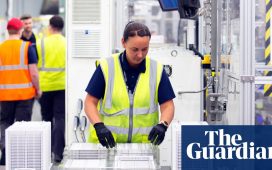In an era where environmental concerns are escalating, Nigeria stands at the cusp of a transformative journey towards sustainable transportation. On February 17, 2024, at the 18th National Council on Transportation Conference, the Federal Government, spearheaded by the Minister of Transportation, Sen. Saidu Alkali, unveiled an ambitious blueprint aimed at revolutionizing the country’s transport sector. This comprehensive strategy not only prioritizes green manufacturing and industrialization but also marks a significant shift towards adopting natural gas and renewable energy sources to power the nation’s mobility.
Navigating Towards a Greener Future
The heart of the government’s vision lies in its commitment to developing a transportation system that is not only safe and affordable but also eco-friendly. Sen. Alkali emphasized the urgent need for Nigeria to break free from its heavy reliance on fossil fuels, which are not only finite but also a major contributor to environmental pollution. The transition towards green manufacturing, bolstered by the adoption of natural gas and renewable energy, represents a pivotal step in mitigating the impacts of climate change while ensuring the country’s economic growth and energy security.
Further reinforcing this commitment, the Nigerian government has announced several initiatives designed to foster innovation and promote the use of alternative energy sources within the transport sector. Among these, the introduction of electric vehicles and motorcycles in Ogun State stands out as a beacon of progress. This initiative, championed by Governor Dapo Abiodun, aims to cushion the impact of petrol subsidy removal while enhancing business development and creating new opportunities for residents and travelers alike.
Setting the Wheels in Motion
At the core of these transformative efforts is the establishment of a ministerial performance bond by Sen. Alkali with the ministry’s Directors and Chief Executive Officers. This bond is not merely a formal agreement but a testament to the collective resolve to achieve sustainable development in the transport sector by 2027. It underlines the government’s intention to provide an efficient, modern, and intermodal transport system that aligns with President Tinubu’s vision of a renewed Nigeria.
Significant strides have already been made in railway development, with the conversion from narrow to standard gauge being a notable achievement. Managing Director of the Nigerian Railway Corporation, Fidet Okhiria, highlighted this progress as a crucial step towards enhancing the country’s rail infrastructure, thereby offering a more sustainable and efficient alternative to road transport.
Embracing Innovation for a Sustainable Tomorrow
The transportation sector’s transformation is not merely about adopting new technologies but also about embracing a new mindset. During the conference, Sen. Alkali called attention to the environmental degradation caused by the transport sector’s overdependence on fossil fuels and the pressing need to explore and accept innovative solutions. The Minister’s reference to commitments made at the World Climate Action Summit serves as a reminder of Nigeria’s obligation to contribute to a sustainable future by accelerating innovation and deploying green alternatives.
This vision for a sustainable transportation system in Nigeria is not just about reducing emissions or conserving resources; it’s about creating a resilient and thriving economy that can withstand the challenges of the 21st century. With the Federal Government’s comprehensive strategy, encompassing modernization, green manufacturing, and the promotion of renewable energy sources, Nigeria is steering towards a future where transportation not only connects people but also protects the planet.
In summary, the Federal Government’s dedication to fostering a safe, secure, affordable, and sustainable transportation system is clear. Through initiatives that prioritize green manufacturing, renewable energy, and innovative technologies, Nigeria is poised to mitigate energy challenges and support economic growth. The collaborative efforts of the government, state authorities, and industry leaders underscore a shared commitment to achieving sustainable development and economic prosperity, making the vision of eco-friendly transportation a tangible reality for Nigeria.










